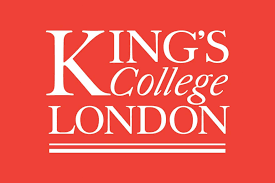
The Institute was delighted to host its annual World Trade Summit last week and this year we were proud to be working with Barclays and the Policy Institute at King's College London, on a research project looking at how the UK can improve its export performance. The results of this research report were launched at the summit and a summary can be found below.
As the second largest exporter of services and tenth largest exporter of goods, the UK is one of the world’s leading exporting nations. Whatever happens with Brexit, it is important that the UK’s current and potential exporters, of all shapes, sizes and sectors, receive the right support to be successful. This is therefore a very good time to look at our strengths and weaknesses, to ensure we have the right infrastructure, Government
policy and private sector support in place so that all businesses are in a position to realise their exporting potential.
In August, the Government launched its Export Strategy to make Britain a ‘21st Century exporting superpower’, stating an ambition to increase exports to 35%. Barclays, in partnership with the Policy Institute at King’s College London, have been analysing how we can help to unlock the UK’s exporting potential.
The partnership has focused on providing practical advice for exporters alongside expert commentary from key sector leaders, policy makers and influencers. We believe sustainable reform is only possible through effective partnership between finance, business, Government and trade bodies.
We are pleased to be launching our latest research report, which takes an in-depth look at how exporting firms across the UK perceive barriers to export growth, how current exporters make use of Government and other export support, and how policy can help firms to improve their export performance. Our overall aim is to strengthen and
inform UK trade policy development.
The key findings can be distilled into six major findings and recommendations:
The Government’s overall approach to supporting exporters is well-founded.
The Government is right to highlight the need to better evaluate the UK export landscape,
particularly opportunities for, and barriers to, international trade. As a basis for developing the Export Strategy further, this work should be prioritised.
Finding the right way to communicate with different types of UK firms about exporting remains a challenge. Government should continue to refine its communications with UK firms about exporting, avoiding a one-size-fits-all approach to messaging.
The export support landscape remains too complicated. Government should seek to simplify this as an urgent priority, reducing its complexity for the benefit of UK firms. Effective implementation of a ‘no wrong door’ policy at all levels will help UK firms to access the support the need.
Supply chains present both export opportunities and challenges to UK firms. Government is right to highlight the need to develop a deeper understanding of UK supply chains. This can help UK firms understand how supply chain involvement can create both opportunities and challenges for exporting, increasing their economic resilience.
Digital literacy affects the UK’s export performance. Digital literacy cannot be taken
for granted across the UK business community. Government should consider more carefully the balance between digital and non-digital export support services to ensure all UK firms can access the support they need, irrespective of digital skills.
The most successful export support is delivered face-to-face. Face-to-face export support is highly valued by UK business. Government should avoid overdependence on digital, ensuring digital and non-digital export support services are properly resourced and mutually reinforcing to maximise benefits for UK firms.
This study complements and extends the national level analysis of our two earlier reports – Towards a culture of exporting and Developing ‘superstar’ exporters in the UK – to make a timely contribution to the UK’s trade policy discourse.
 |
 |

